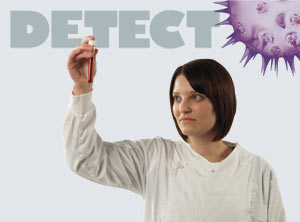
 Alice Richardson
Alice Richardson
Microbiology
Graduate
If you are ever unfortunate enough to be in hospital during a bacterial outbreak, rest assured that Alice Richardson will be working against the clock to help solve the problem.
Alice, a University of Otago Microbiology graduate, works as a senior technician at the Institute of Environmental Science & Research, and a major part of her role involves analysing the origin of nosocomial (hospital-borne) infections. The information she uncovers is sent back to the hospitals in question, who can then make informed decisions about containing the infections.
It's like detective work, except that the bad guys in this case are too small to see with the naked eye and require state-of-the-art sequencing technology to be unmasked.
“I love this work,” Alice says. “The most rewarding thing about clinical microbiology is being able to actually help people and to provide something that's useful for human health.”
Originally, Alice had intended to train to become a doctor, but during her first year studying Health Science, she fell in love with the “amazingly diverse and complex” hidden world of microbiology.
Alice had her first interview with ESR before she had finished her degree, and her first day on the job came just three days after she graduated. She credits the quality of teaching and supervision at Otago for the ease with which she was able to find stimulating professional work.
“The Microbiology staff were amazing,” she says. “Our lecturers basically live and breathe what they teach. They are actually working in labs and producing papers, so what they are teaching comes straight out of the work they do themselves.”